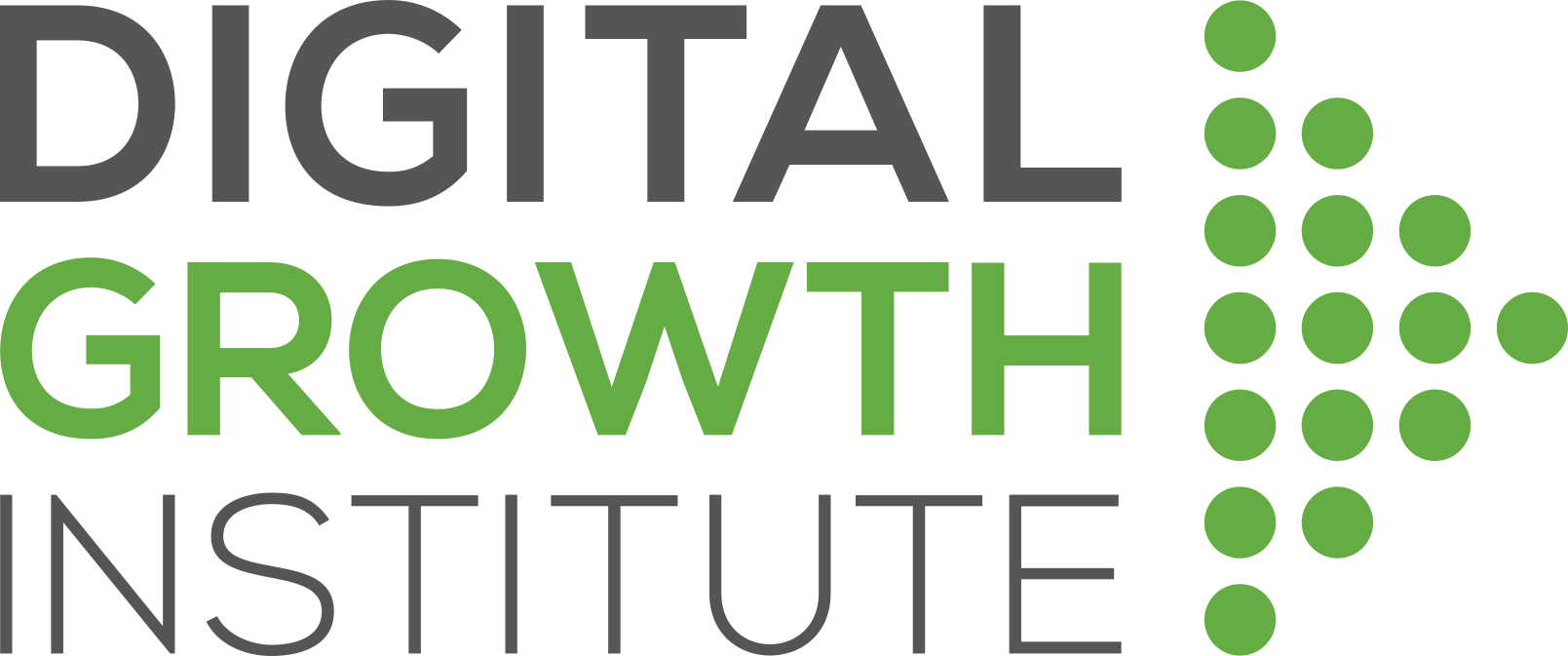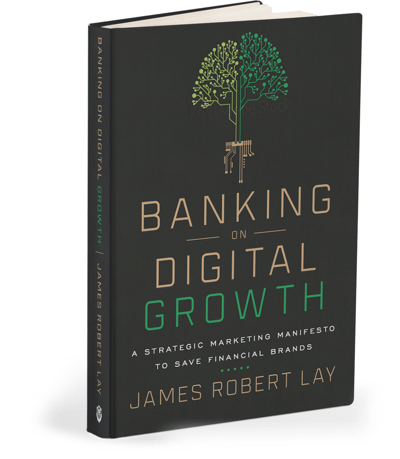“The further we go into what are these tools? What can they do for us? What can we do with them? As we define this this type of technology and start to explore and interact with it, we're also at the same time simultaneously defining what it means to be human prompted. AI is useless without us. It's like a guitar. It looks nice, maybe sitting over there hanging on the wall. But until someone picks it up and interacts with it, it's not really useful for its greatest purpose.” - Ethan Beute
Automation is dominating the marketing world with the continuing rise of regenerative AI. But as humanity continues its infant journey in this new frontier, many people are getting caught up in a lifeless deluge of digital pollution.
And as returning guest to the Banking on Digital Growth Podcast, Ethan Beute, Chief Evangelist at BombBomb and co-author of Human-Centered Communication, suggested, people’s trust in digital content will further erode the worse the noise gets.
In this article, we examine why video could be the great differentiator in human relationships for financial leaders and their brands in the Age of AI.
Top three insights from this article:
- Embrace the power of curiosity and curation. Together they enable individuals to extract useful information from AI-powered interactions.
- Warmth and competence required to build trust. are best conveyed through video, allowing for emotional connections, visual cues, and sensory experiences.
- By recording personalized videos, leaders can instill confidence. Foster a sense of connection and authenticity with those in the communities you serve, especially in times of uncertainty.
Humanizing the Digital Landscape To Avoid Noise and Gain Trust
In the Age of AI, the dynamics of communication are clearly shifting. And it’s important to understand the new tools at our disposal and master their potential to enhance our unique human skills, rather than replacing them.
"As we define this type of technology and start to explore and interact with it, we're also at the same time simultaneously defining what it means to be human. And what we're really good at what remains unique to us."
Related Content: Trust: Shouldn’t It Be The Foundation of Finance?
Trust is built through conversations and connections, but it's this very process that's being transformed by the AI revolution.
As James Robert puts it, "Trust comes back to what you say, what you do, how you have these conversations, the mediums of which we have these conversations... it's requiring us to almost rewire neural networks to establish and maintain trust."
However, the potential of increased digital noise and pollution may pose challenges for trust-building and gaining attention. Ethan explains that as we equip more people with the tools to disseminate content rapidly and easily, the likelihood of non-differentiated, machine-generated information increases.
"Noise makes attention hard to get, pollution makes trust hard to build," Ethan shared. He also warns of the danger that digital pollution poses, especially in a high compliance, secure, and private industry like financial services.
James Robert draws parallels between the Gutenberg Printing Press era and the current state of AI development. He argues that just as the printing press democratized thinking, the rise of AI tools such as Chat GPT could lead to the commoditization of the written word.
Related Content: Video Communication: Give Them a Reason to Care
However, AI can be used for co-creation, while the perspective and insight still come from human minds. James Robert shares, "It's the human perspective that's the tip of the spear. That's how we cut through the fog, to continuously provide clarity and be a guiding light."
So while you might enlist the help of tools like Chat GPT to jumpstart your thinking or create an outline, it's how you communicate and deliver your thoughts and ideas that will be the differentiator moving forward.
Real-life human connections cannot be commoditized.
Humanizing Communication Through Warmth and Competence
James Robert believes that video is the most effective medium for constantly communicating confidence, surpassing even audio-based mediums like podcasts. Ethan expands on this idea, emphasizing that communication is rooted in emotions and human judgment.
We've most likely all heard the truism: People don't care how much you know, until they know how much you care.
And Ethan believes that every single social judgment is made on warmth and competence. Warmth encompasses motivation, intent, sincerity, and the ability to connect with others on an emotional level. While competence involves providing accurate and relevant information to instill confidence in the audience.
Related Content: How to Humanize a Financial Brand and Show You Care
While AI tools can contribute to the competence aspect, the warmth component heavily relies on human communication. The way we say things, our tone, body language, and overall presence play a vital role in making others feel understood, valued, and confident in our expertise.
To bridge the gap between digital interactions and in-person connections, video communication becomes indispensable. Ethan highlights the need to include video when face-to-face meetings are not possible. The brain, shaped by evolution, craves sensory and emotive cues to make decisions. By incorporating video into their digital communications, people can satisfy this deep-rooted human need and establish meaningful connections.
Communicating Confidence in Times of Crisis
Think about the recent bank crisis, particularly the rapid spread of information and perceptions through the social media firestorm on Twitter. While financial brands responded to the crisis, it was often through a single communication piece, such as an email or a letter approved by the institution.
But as James Robert stresses, perception creates reality, and what people hear, see, and read on social media can make them feel nervous. The EQ (emotional intelligence) gap within the financial services industry, which contributes to a communication gap.
Ethan emphasized the importance of leaders being present and actively listening to their communities. He mentioned the significance of reading the room, whether it's on a global or community level, to understand the needs and concerns of the people they serve.
Leaders can use videos to convey their thoughts, beliefs, and actions, instilling confidence in their audience. By recording a simple video at their desk, leaders can speak directly to their teams, addressing their concerns, sharing their thoughts, and demonstrating transparency. Authenticity plays a crucial role in building trust, and videos allow leaders to communicate genuinely and foster a sense of connection.
Take Action Today:
To maximize growth and embrace the potential of video communication, James Robert and Ethan offered actionable steps for individuals.
- Practice using AI tools, such as Chat GPT, to familiarize themselves with the technology and explore its capabilities. By engaging with AI tools hands-on, individuals can learn, experiment, and gain a better understanding of how to effectively leverage AI.
- Take advantage of the free digital copy of the book "Human Centered Communication," co-authored by Ethan and Steve Pacinelli. This resource provides valuable insights from 11 experts in sales, marketing, leadership, and culture and offers practical guidance on building human connections in an increasingly digital world. By studying the book, individuals can gain valuable strategies and techniques to enhance their communication skills and harness the power of video as a tool for differentiation.
By embracing curiosity, leveraging authenticity, and utilizing video communication, individuals can navigate the challenges of the digital age, foster meaningful connections, and build trust in a world increasingly influenced by AI technologies.
For more about financial transformation, reach out to James Robert Lay at the Digital Growth Institute.
This article was originally published on June 7, 2023. All content © 2024 by Digital Growth Institute and may not be reproduced by any means without permission.





